Acting for better aquatic animal health and welfare worldwide

Over 50 million people worldwide depend on fisheries and aquaculture for their livelihoods. However, aquatic animal diseases can jeopardise the economic and environmental sustainability of this source of income. For instance, on a global scale, disease outbreaks cost the aquaculture industry over US$6 billion per year.
As the emergence of new diseases is likely to continue, driven by factors such as climate change, unsustainable farming practices or unregulated trade, careful management of the health of aquatic animals is crucial. Most of these diseases severely impact the aquatic animal production sector, but also the open ecosystems in which these populations often live.
The World Organisation for Animal Health has been at the forefront of preserving the significant contributions of aquatic animals, supported by its international network of experts for over 50 years. 2021 marked the launch of its global Aquatic Animal Health Strategy: an ambitious call to action to improve the sustainability of aquatic animal health systems.
Guided by this strategy, we are bringing together different actors from the international community to coordinate joint actions in response to the challenges met by the aquatic sector. By working together, we can make our vision of improved aquatic animal health and welfare worldwide a reality.
The OIE Aquatic Animal Health Strategy is a cornerstone towards more sustainable aquatic ecosystems.
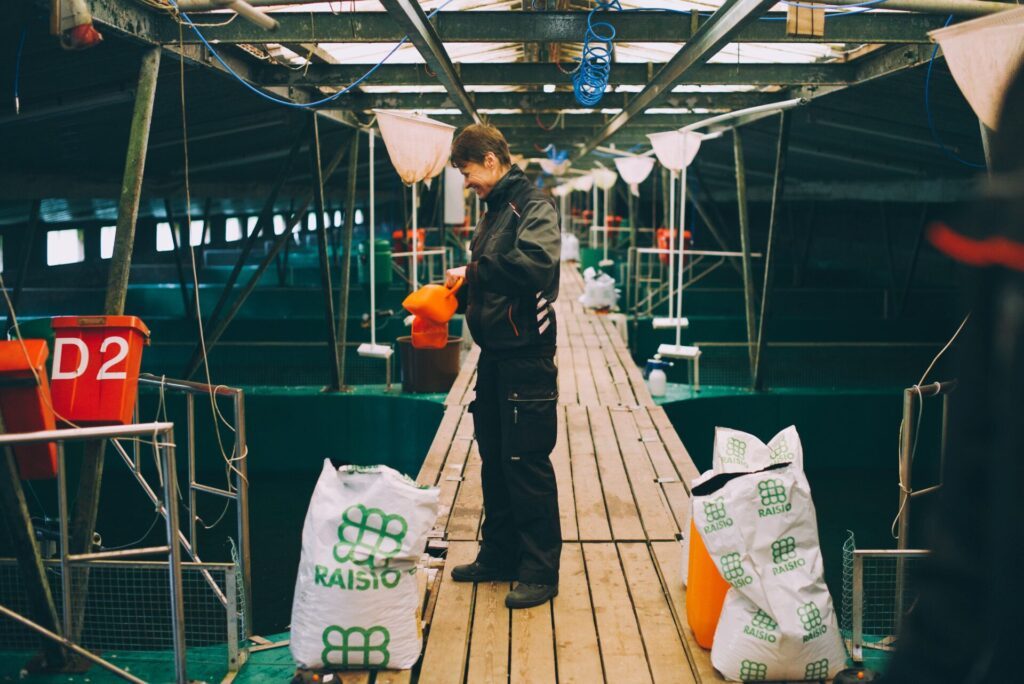
Processed with VSCO with e6 preset. ©OIE/V.Johansson 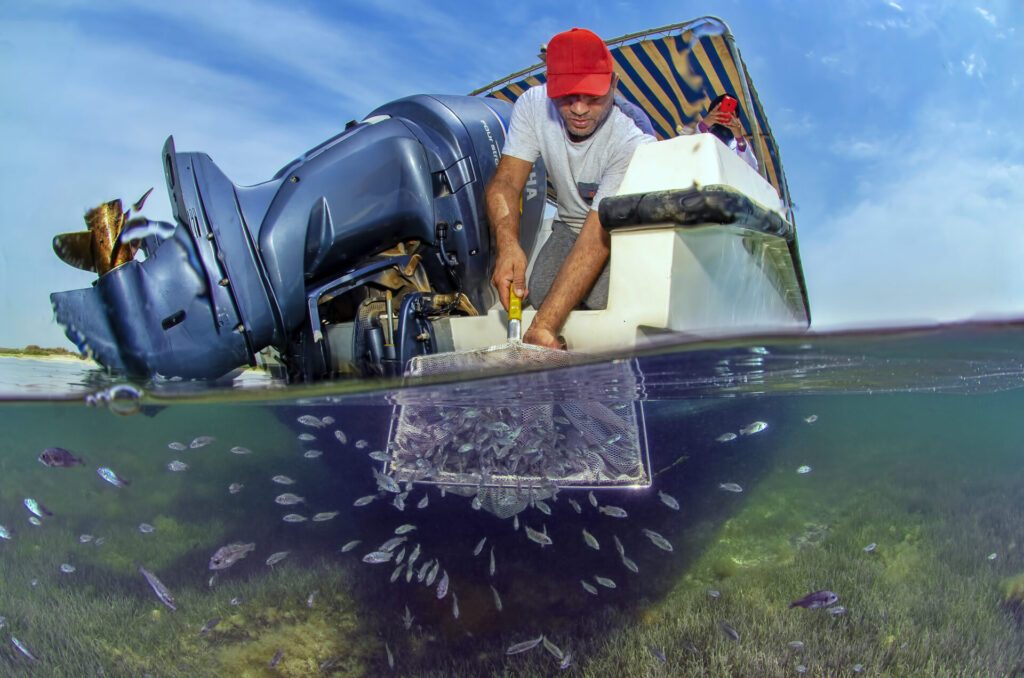
Fish release ©OIE/H.Bader 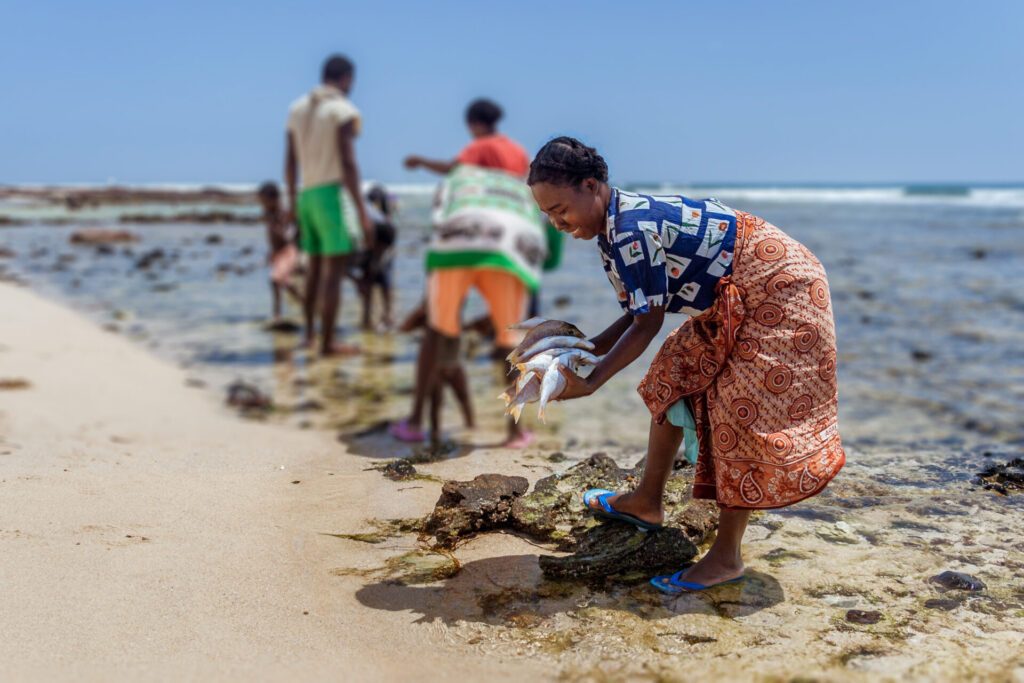
Malagasy woman preparing fish to the return of fishing on the beach of Lavanono in far south of Madagascar 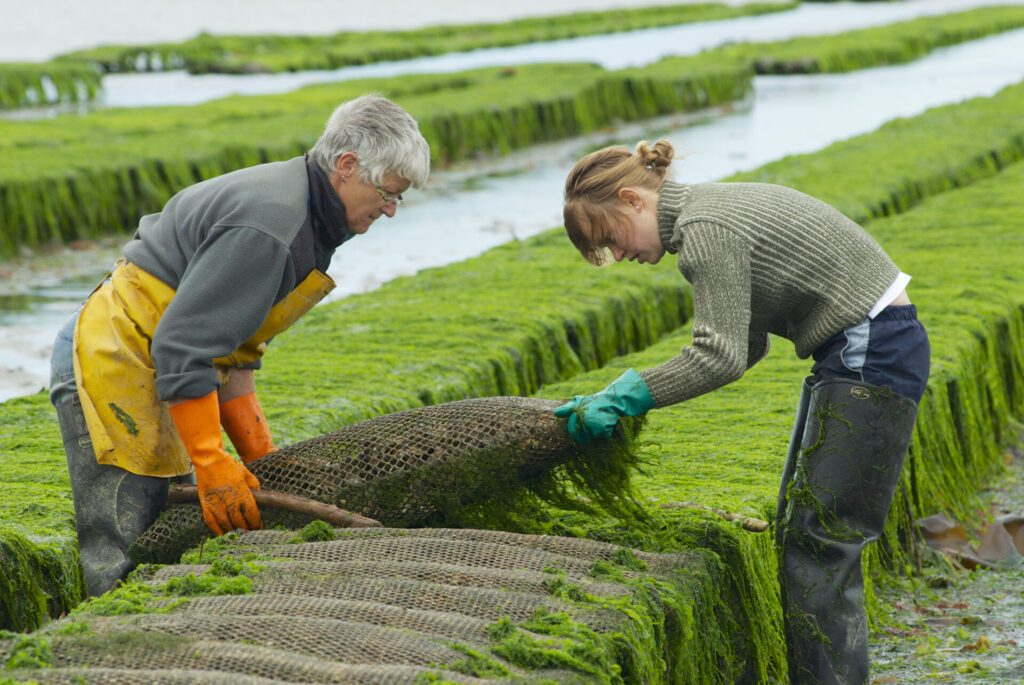
Farmers work at oyster farm at low tide on July 03, 2008 in Grandcamp-Maisy, France. 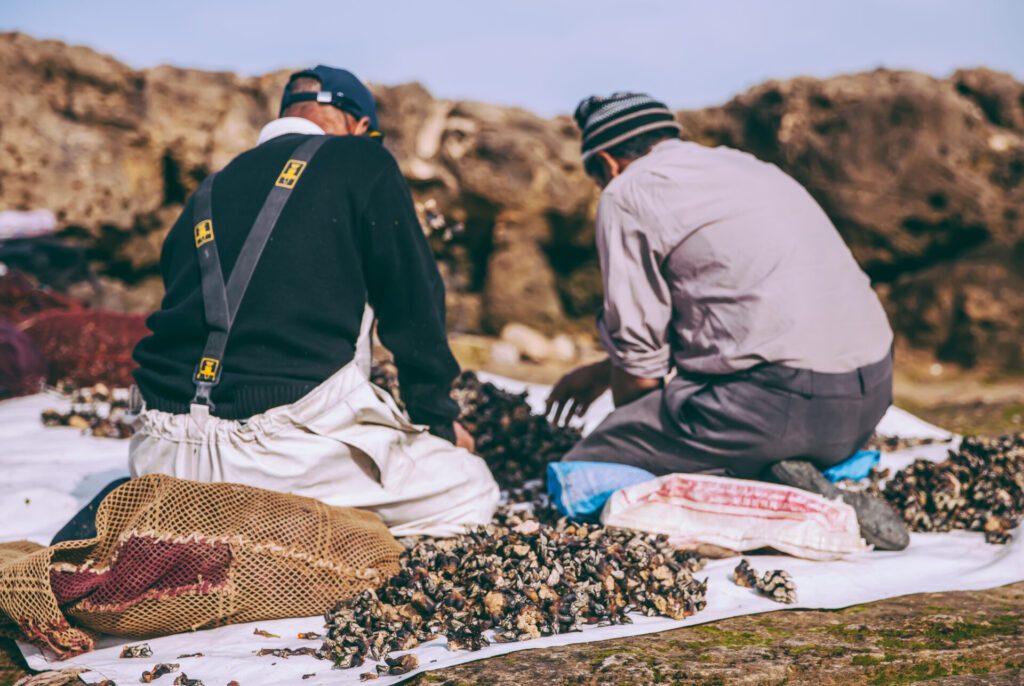
Two fishermen are arranging the goose barnacles by the seaside in Essaouira, Morocco.
